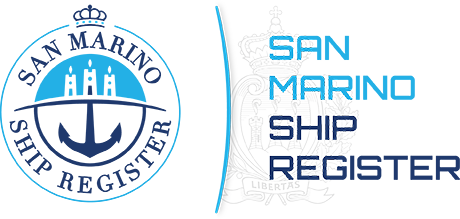Posted in IMO Regulations, Flag State Requirements
IMO requirements are updated regularly and 2022 is no exception. As a Flag State, it is important to keep up to date with regulations to ensure you are always compliant and so are the various vessels and crews you deal with.
Changes in IMO will take place over the next year with most updates being finalised by the end of 2022. The regulations which have been updated are in four key conventions: - MARPOL, IMDG, AFS Convention and ESP Code.
It is clear that the focus on the amendments is to do with the environment and the impact that shipping has had on climate change. In bringing these amendments into force, IMO have declared that the shipping world has to change its outlook on its environmental impact and acting now is seen as better late than never.
Amendments in regulations can take many different forms, some of them are just updating the wording on a convention to redefining terms whereas others have had a complete overhaul.
So, what exactly is being amended, and when does everything change?
MARPOL Convention
The International Convention for the Prevention of Pollution from Ships (MARPOL) has various updates to its regulations.
MARPOL Convention Annex VI
MARPOL has 3 separate amendments this year. This annex relates to fuel on the ship – which fuel to use, the handling and storage of and general regulations. It introduced new fuel oil samples that will assist in confirming compliance with the MARPOL Annex VI sulphur requirements and the ban on fuel oil that contains more than 0.50% sulphur. These relate mainly to the “in-use” sample taken from the fuel oil system and the “on-board” sample representing fuel that is carried for later use in the fuel oil storage tanks.
Reg 2 has now been updated with a new definition on low flashpoint fuel. Five additional paragraphs have been added after paragraph 51, to define and clarify some of the terms used earlier in the regulations.
Reg 14 regarding the requirements of sampling points has also been updated. The new requirements apply to both new ships and existing ones and relates to in-use and onboard fuel oil sampling and testing. It states that one or more sampling points have to be fitted or designated for the purpose of taking samples of fuel oil that is being used or carried on board for use on the ship. These samples will be taken to verify the sulphur content of the fuel oil used on board.
Reg 18 advising on the availability and quality of fuel oil has had paragraph 8.2 re-written to confirm that sample testing should be done in accordance with the verification procedures laid out in appendix VI of the Annex, which has also been re-written.
Reg 21 has been updated to change the time period and reduction rates for Energy Efficiency Design Index (EEDI) phases 2 and 3.
It should also be mentioned that a supplement to the International Air Pollution Prevention (IAPP) certificate has been amended in reference to sampling points and to advise on the exemption to the provision for low-flashpoint fuel.
These revisions are for all ships, both new and existing and the compliance date will be for the first renewal survey after 1st April 2023.
There have also been some revisions to Annexes I, IV and VI regarding the exemption of unmanned non-self-propelled (UNSP) barges from survey and certification requirements under MARPOL Convention. These will come into force on November 1st, 2022.
With Brexit meaning that UK ports are no longer bound under the EU MRV, the UK government has released guidance on its own UK MRV scheme to monitor, report and verify CO2 emissions.
This came into effect in January 2022 for ship operators and is already making waves with shipping operators.
The UK MRV Scheme is as follows:
All ships are now required to calculate their Energy Efficiency Existing Ship Index (EEXI) to establish their operational carbon intensity indicator and CII rating yearly.
This is not in place until January 2023, but ship operators will need to update and revise their Ship Energy Efficiency Management Plan (SEEMP).
The first annual reporting will be completed in 2023 with the first rating being provided in 2024.
Amendments 40-20 have been added regarding the carriage requirements for new and existing substances. There are new handling codes for medical waste which will come into force in June 2022.
There have been amendments proposed for commissioning testing of ballast water management systems and forming the International Ballast Water Management Certificate, effective 1st June 2022.
The commissioning testing is to be done by an accredited entity independent from the BWMS manufacturer or supplier that is also approved by the flag Administration or the RO working on its behalf.
With these amendments coming in over the next year, it is really important that flag Administrations have everything in place that they need to ensure full compliance with them. Being part of Oceans HQ means you can get advice, support and guidance with compliance and implementation of any regulation changes. To find out more how we can help you and your flag Administration team, click here or call us on +44(0)3300 881002.







Capture, process and analyse your Maritime Administration's data while ensuring compliance with international regulations.